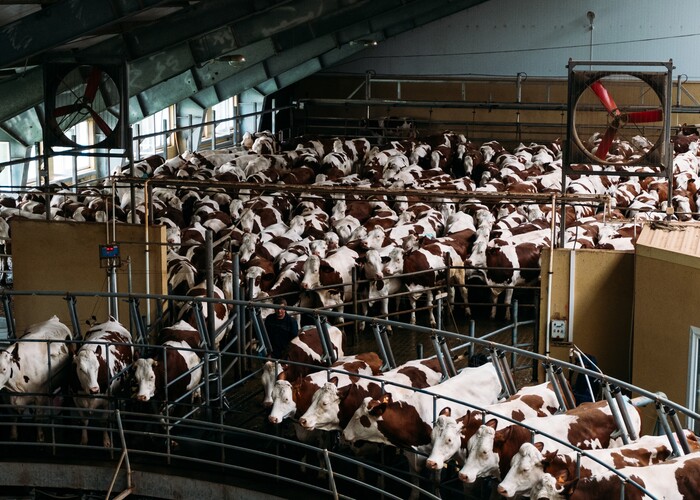MADRID – Amid outrage in the meat industry, Spain’s government is distancing itself from the interview Consumer Affairs Minister Garzón gave to ‘The Guardian’. Garzón was very critical of factory farming.
The minister said in the interview that mega stalls “pollute the soil and water and then export the bad meat of abused animals.” His claims that factory farming is harmful to the environment and leads to the export of poor quality meat, have sparked furious reactions.
‘Factory farming not sustainable’
In an interview published on Boxing Day, the consumer affairs minister defended traditional grazing “as an environmentally sustainable way of farming”. “That is sustainable; what is not sustainable at all are these so-called mega stables,” he said. “They move into a village in a depopulated part of Spain and bring in 4,000, or 5,000 or 10,000 head of cattle. Those factory farms pollute the soil, they pollute the water and then they export the bad meat of these abused animals.”
Garzón is the coordinator of the Izquierda Unida party, a smaller, left-wing party in the coalition government led by Prime Minister Pedro Sánchez’s centre-left Socialist Workers’ Party (PSOE).
Outrage meat industry
Garzón’s remarks have sparked outrage from the meat industry, opposition politicians, and senior members of the PSOE. They all want the government to back off.
‘Livestock industry absolute priority’
Isabel Rodríguez, the government spokesman, said Garzón spoke in a personal capacity. Furthermore, she added the livestock industry was “an absolute priority” for the government. She also praised the “extremely high quality” of its products.
However, Garzón rejected the claim that he was speaking on his behalf. “What I said, I said as consumer affairs minister. There’s no other way to see it,” he said in a radio interview with Cadena Ser.
“I’m not saying anything new,” he told the station. “I’m just passing on what scientists say. Everyone knows that the meat industry causes pollution… and factory farming emits greenhouse gases. Therefore, Europe has filed a case against Spain for excessive nitrate pollution.”
Garzón also pointed out that although the Spanish Agency for Food Safety and Nutrition recommends that people eat between 200 and 500 grams of meat per week, the average Spaniard consumes more than 1 kg. In July the Minister also caused outrage from the meat industry because he said Spaniards must eat less meat.
Minister’s ‘irresponsible behaviour’
Pedro Barato, the president of the agricultural association Asaja, accused Garzón of irresponsible behaviour and called for his resignation. “The Spanish livestock industry relies on exports to survive,” he said. “You can’t spread these kinds of messages in the international press.”
Álvaro Mateos Amann, the president of the Basque Veterinary Association in Vizcaya, also demanded Garzón’s resignation. Furthermore, he said the comments of what he called the “pseudo minister” were a typical example of “the poor quality of our political representatives. Moreover, they show their lack of respect for livestock farming”.
‘Irreparable damage to the meat industry
Centre-right Ciudadanos Unidos said in a statement Garzón had caused “irreparable” damage to Spain’s livestock industry “in one paragraph”. Pablo Casado, the leader of the conservative People’s Party (Popular Party), said it was “unacceptable that the government tells the international press that Spain exports poor quality meat from abused animals”.
Environmental disaster Mar Menor
A report published in October says intensive pig farming likely played a major role in one of Spain’s worst environmental disasters. This disaster led to the death of thousands of fish in the Mar Menor, a saltwater lagoon in southeastern Spain.
Scientists see decades of nitrate-contaminated wastewater discharged from farms as the cause of massive algae growth and massive fish kills.
According to government figures, there were 32 million pigs in Spain in 2021. Furthermore, seven million cows and 15 million sheep and goats.
Reduce meat consumption
Garzón was attacked earlier in July for urging Spaniards to cut their meat consumption. “This doesn’t mean we can’t have a family barbecue now and then. We just have to do it with a little more restraint,” he said. “Eating too much meat is bad for our health and the planet.”


